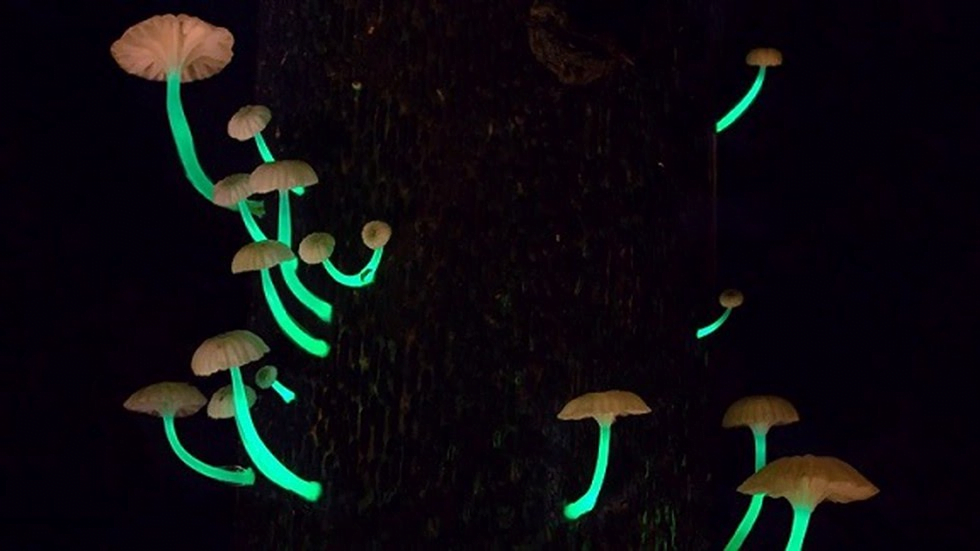UPSC Articles
Roridomyces Phyllostachydis: Bioluminescent variety of mushroom
Part of: GS Prelims and GS-III – Biodiversity
In news
- A mushroom documentation project in the forests of Northeast India has led to a new discovery: a bioluminescent (light emitting) variety of mushroom.

Key takeaways
- The new species — named Roridomyces phyllostachydis — was first sighted in August in Meghalaya’s Mawlynnong in East Khasi Hills district and later at Krang Shuri in West Jaintia Hills district.
- It is now one among the 97 known species of bioluminescent fungi in the world.
- The new species is important because it is the first mushroom in the Roridomyces genus to be found in India.
- It was the only member in its genus to have light emitting from its stipe or stalk.
Important value additions
- Bioluminescence is the property of a living organism to produce and emit light.
- Animals, plants, fungi and bacteria show bioluminescence.
- Bioluminescent organisms are usually found in the ocean environments, but they are also found on terrestrial environments.
- The colour of the light emitted by the organism depends on their chemical properties.
- In the case of fungi, the luminescence comes from the enzyme, luciferase.











